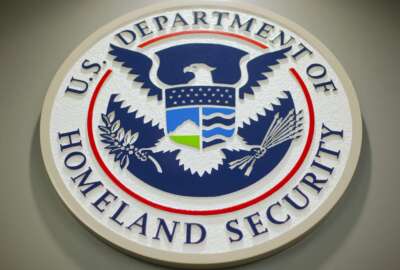GSA gives agencies more time to move to Networx
The agency is extending the FTS2001 bridge contract with four vendors for at least another six months. Most of the largest agencies have not fully transitioned to...
wfedstaff | June 4, 2015 12:48 am
By Jason Miller
Executive Editor
Federal News Radio
The General Services Administration’s drop dead date for agencies to transition to the Networx telecommunications contract isn’t so firm after all.
After telling agencies the FTS2001 contracts will end in May-June 2011, GSA is extending the bridge contracts with Qwest, AT&T, Verizon and Sprint for at least another six months, if not another year.
“We went out to all the agencies and said ‘do you need the new contracts? Are you going to be done? And are you 100 percent done or do you think you will be 100 percent done?'” said Karl Krumbholz, the director of network services programs for GSA’s Federal Acquisition Service. “If they are, we’re using a different approach this time, where we are actually naming the agencies on the contract that will be authorized to use it. Not just for all of government, but just the agencies who aren’t done.”
GSA gave agencies an extra four months in November 2009 to choose their vendors. It then added more time for agencies to receive reimbursement for moving to Networx.
But those two extensions still aren’t enough.
Krumbholz, speaking on a panel sponsored by Affirm Thursday, said about 58 agencies are 100 percent transitioned to the Networx contract, including the Energy Department and the National Science Foundation. But most of the other large agencies need the FTS2001 bridge contract extension.
“There are still some agencies that have not yet made their fair opportunity decisions,” he said. “If you haven’t even done that yet, you have a long road to go in completing the complete transition. Those working with carriers are moving along and I have no thought they will not get done in a reasonable amount of time.”
Krumbholz added about six agencies still must make fair opportunity decisions, including the Social Security Administration and the Interior Department, both of which have been delayed because of protest.
As of April 28, GSA reported about 60 percent of all money that will be transitioned to Networx remains under FTS2001, but 85 percent of all connections have been moved to the new contract.
Krumbholz said GSA reached a deal with Qwest to extend the bridge contract, and is working on extensions with AT&T, Verizon and Sprint. He said all three should be done before the current bridge contracts expire next month.
“What we are trying to do basically is maintain the same services we have on FTS2001,” he said. “Everything is different so it’s not possible to say take your FTS2001 services and price them as they have been priced on Networx.”
GSA is getting some help from the Office of Management and Budget to pressure agencies to complete their transitions to Networx.
Krumbholz said agencies are moving as quickly as they can, but there are so many details associated with defining requirements and their inventories that it’s taking longer than they thought.
Beyond Networx
Now as GSA is pushing for agencies to move to Networx, Krumbholz’s office is starting to do the research for the follow on to Networx, called Networks 2020.
Krumbholz said Networks 2020 is just in the early stages of planning. GSA is meeting with agencies about their current and future needs. Networks 2020 will include the regional programs and new and emerging technologies.
He also said Connections II will do an initial downselect of bidders later this summer. GSA also will award the managed services portion of the Commercial Satellite Services-2 last this year.
GSA FAS isn’t just about Networx and telecommunications services. It also is developing a business case for a new integrations contract.
“What the integrations effort deals with is trying to integrate all the different support type services, such as professional engineering services, MOBIS schedule, the LogWorld schedule,” said Mike O’Neill, deputy director of the GWAC programs at GSA. “All these different schedules [will be] under one roof where a government agency can go and obtain these services under one contract instead of having to try and piece the contracts together or have a prime-sub relationship with all the different schedule types.”
O’Neill added that agencies also won’t have to just use firm-fixed price contracts, but cost-reimbursement type contracts under the integrations effort.
GSA has tried bringing all these schedule contracts together under one roof in the past, but it hasn’t been successful. O’Neill said one reason it didn’t work previously was the lack of communication during the pre-merger days of the Federal Technology Service and Federal Supply Schedule. And then, it took time for FAS to grow as an organization.
O’Neill said this time it will be different because the culture and needs have changed. There is no timeframe to get this integrations effort done, but O’Neill said the initial business case is done and now under review by the General Supplies and Services (GSS) group of FAS.
Once GSS approves it, senior FAS management will review it and then it will go out to vendors for comments.
New HSPD-12 services coming
GSA also is working on several new or additional contracts.
Larry Hale, GSA’s director of the office of strategic solutions and security services, said the agency is preparing to transform its Homeland Security Presidential Directive-12 managed services offerings.
Hale said the MSO initially focused on getting secure identity cards in the hands of employees. But now with more than 700,000 employees with HSPD-12 cards under the MSO, Hale said it’s time to start offering services.
“We need physical access. We need logical access services. We want them all to be integrated. We want them to work together. We want to go to other agencies with our cards,” Hale said. “We are in the fortunate position to be at a transition point in our service contract for HSPD-12, which gives us the opportunity to focus on security and guaranteeing and protecting the identities.”
He added GSA’s agency customers are asking for these physical and logical access services.
“We are in the process and there will be procurements pending soon for those kinds of additional services through the HSPD-12 Managed Service Office,” Hale said.
Hale also said GSA is preparing SmartBuy 2.0, which is the enterprise software buying initiative.
Hale said GSA created a commodity team to review agency plans for large software purchases not just for this year, but in coming years as well.
The commodity team has been working with chief information officers, chief acquisition officers and others to better understand where about 80 percent all money directed for software is spent.
Hale said along those same lines, GSA posted a draft request for proposal for wireless services and technologies on the BetterBuy wiki Thursday. GSA plans to have an industry day May 26 in Arlington, Va.
“The purpose of this requirement is to provide the procurement vehicle for a centralized governmentwide cellular devices and services program that will meet the majority of the federal government’s wireless service needs that are offered by the cellular industry,” GSA states on the wiki.
Schedule 70 updates
Additionally, Patricia Waddell, the deputy director of the IT schedules at FAS, said her office will release a contracts guide in July, upgrade its call center to support tier 3 calls, which are the most complex and need the most immediate attention, by the end of the September, and is finalizing a new strategic plan to keep the IT schedules evolving and meeting customer agency needs.
Waddell also said FAS is testing a new system to accept electronic offers for vendors to get on the schedule and electronic modifications so vendors can change their schedule contracts easier. She said about 70 vendors are piloting the new online system, and if all goes well, FAS expand system to all schedule contractors by early 2012.
(Copyright 2011 by FederalNewsRadio.com. All Rights Reserved.)
Copyright © 2024 Federal News Network. All rights reserved. This website is not intended for users located within the European Economic Area.





